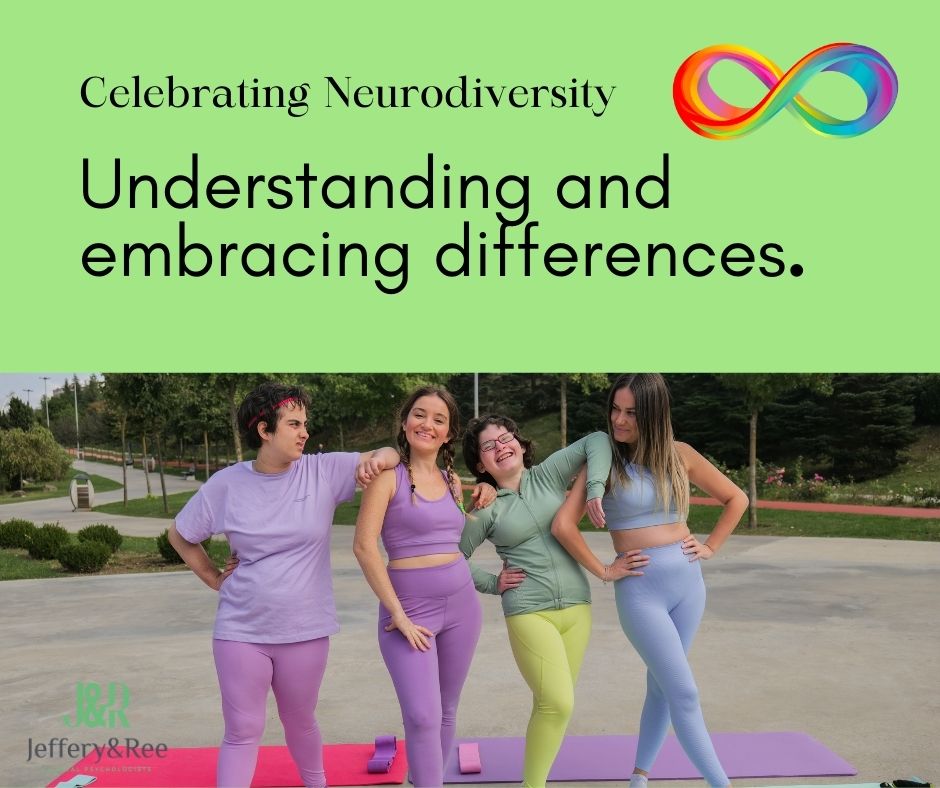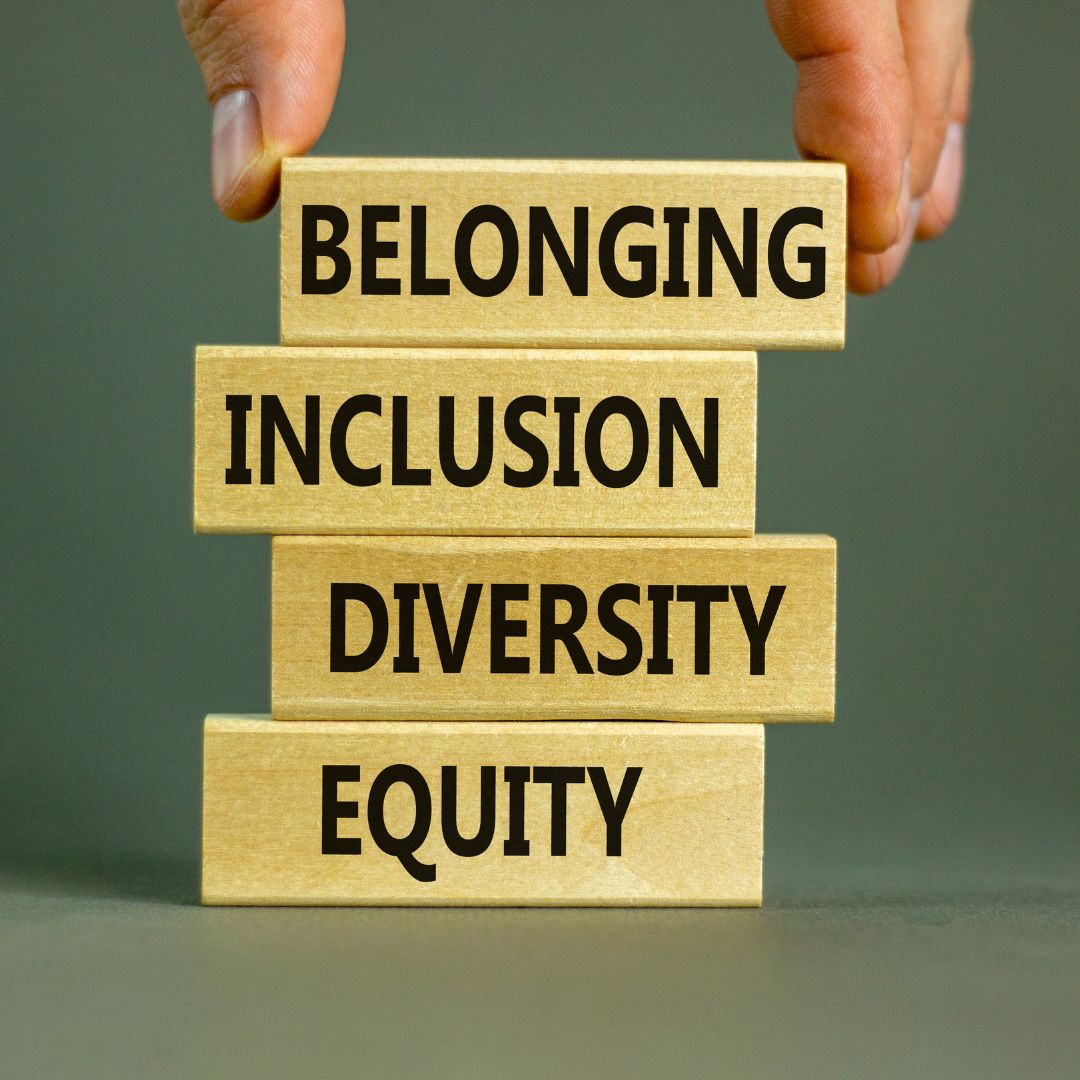
Neurodiversity, a term coined by Australian sociologist Judy Singer in 1998, emphasises the diversity of human neurology, brain function, and nervous systems. It encourages us to embrace the wide range of neurological variations in our population, likening it to the biodiversity that is crucial for our ecosystem’s health. Recently, there has been a growing understanding of neurodiversity, urging us to take a neurodiversity-affirming approach in psychology. This approach is about understanding, accepting, and celebrating neurodiversity: challenging the pathologising of neurological differences, and empowering neurodiverse individuals to thrive.
Neurodivergence
Kassiane Asasumasu, an autistic rights activist, introduced terms such as “neurodivergence” to encourage awareness of various neurotypes, each with their own strengths and challenges. There are many types of brains that differ from the neurotypical standard. This highlights that there is not a fixed definition of “normal” what it comes to neurology.
Neurodivergence is a broad term that includes neurotypes like Autism, ADHD, and other neurodevelopmental differences. People can be born neurodiverse (eg., it can be passed down through genetics) or it can develop during life (eg., following traumatic brain injury or illness). Neurodivergence is not a diagnosis or a disorder, and it is not limited to specific conditions, but encompasses all brain types that deviate from what is “typical.” This diversity includes conditions like Acquired Brain Injury, Dyslexia, Major Depression, Obsessive-Compulsive Disorder, Schizophrenia, Giftedness, Tourette’s Syndrome, and many more.
The Neurodiversity Model

The neurodiversity model challenges the conventional view of disability by highlighting that disability emerges from an interaction between an individual’s characteristics and their environment, rather than disability being an inherent characteristic of the individual. This model encourages us to view neurodivergence as a difference with its own strengths and individual support needs, rather than as a “disorder to be fixed.”
The key principles of the neurodiversity model are:
- All individual differences must be respected and accommodated.
- Access to equal opportunities is a fundamental human right.
- Neurodivergent people must be included in all research and service design.
A Neurodiversity-Affirming Approach to Psychology and Life
Taking a neurodiversity-affirming approach in psychology and our broader community is essential for fostering inclusivity, understanding, and best supporting neurodivergent individuals. Here’s what it looks like:
- Embracing Differences: Accepting that everyone’s neurological makeup is different breaks down the stigma surrounding neurodivergence, and fosters an inclusive society where neurodiverse individuals are valued for their unique perspectives.
- Celebrating Strengths: Recognise and celebrate the unique strengths that neurodivergent individuals bring to the table, such as creativity, innovation, and hyperfocus in individuals with ADHD, or attention to detail and unique problem-solving skills in autistic individuals.
- Shifting from Fixing to Accommodating: Rather than trying to “cure” neurodiverse individuals, create supportive environments and accommodations that empower these individuals. Develop individualised techniques and support to help individuals meet their goals and improve their quality of life.
- Reducing Stigma: Stigmatisation of neurodivergence can lead to isolation, low self-esteem, increased masking, and mental health challenges for those affected. A neurodiversity-affirming approach helps to reduce shame and discrimination, thus helping to improve overall wellbeing in neurodivergent individuals.
- Enhancing Diversity of Thought: Neurodivergent individuals offer unique perspectives to problem-solving, innovation, and creativity, which if embraced, can enhance innovation in many fields.
Practical Steps for a Neurodiversity-Affirming Approach
If you’re interested in promoting neurodiversity and taking a neurodiversity-affirming approach in your life, consider these steps:
- Educate Yourself: Learn about different neurotypes, their strengths and challenges, to better support neurodivergent individuals.
- Use Neurodiversity-Affirming Language: Use identity-first language (e.g., “autistic person” rather than “person with ASD”) and avoid labels like “disorder” or “dysfunction.” Describe “differences, challenges, difficulties, and strengths.” But, always check in with the neurodivergent person you are talking to, and ask them what kind of language they prefer for themselves.
- Promote Inclusivity: Encourage inclusive practices in your workplace, school, or community. This may include creating sensory-friendly spaces, offering flexible work or learning options, or promoting anti-discrimination policies.
- Be Empathetic: Approach neurodivergent individuals with empathy and understanding, listen to their experiences, and avoid assumptions or judgements.
- Celebrate Achievements: Recognize and celebrate the achievements and talents of neurodivergent individuals in your community.
- Advocate for Change: Advocate for policies and practices that support neurodiversity in your workplace, school, or community. Together we can create a more inclusive and accepting society for everyone.
The neurodiversity model offers a fresh perspective on neurological differences. Celebrating neurodiversity is not just about accepting differences, it’s about recognising and celebrating the unique strengths and perspectives that neurodiverse individuals bring to the world. In doing so, we all benefit from a richer, more diverse, inclusive, and compassionate world.
If you are a neurodivergent individual who is seeking support, our psychologists in Perth are continually learning and developing their neurodivergent-affirming approach to therapy and are ready to assist you in enhancing your self-understanding and moving towards your goals.
Written by Eleanor Jones, Clinical Psychologist Perth
Interested in learning more on this topic?
ADHD in children: J&R blog by Yasmin Gonella, clinical psychologist
Jennifer Kemp: resources for Autism and ADHD
Lived Experience Educator: resources to learn more about neurodivergence
Onwards and Upwards Psychology: resources for children, parents, and adults about autism and ADHD
The Neurodivergent Woman Podcast
Blog overview
